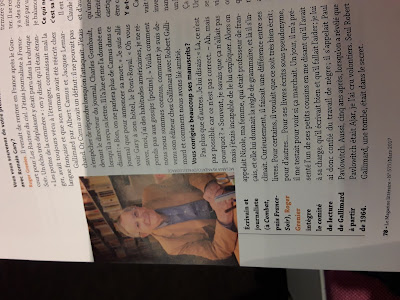French Nazi Collaborators
Romain Gary : the suspicious death (french)
Selon Roger Grenier, éditeur et ami de Romain Gary, à propos du jour de sa mort : "j'ai essayé de reconstituer sa journée. Il avait déjeuné avec Claude Gallimard pour parler de ses impôts. Comme il devait partir en voyage le lendemain, il est allé voir l'infirmière pour lui demander quels médicaments emporter. Il se rendait à Genève pour changer son testament. Il y a des doutes... Selon certains de ses amis, il a été assassiné par une proche... Il y a deux versions qui s'opposent, je balance entre l'une et l'autre." Référence : Assouline Pierre, « Dossier Romain Gary l'aventure de l'écriture », Le Magazine Littéraire, Numéro 577, Mars 2017, p. 78.
Marcel Buat
Marcel Buat
Marcel Buat was an informer of the Gestapo under the Vichy regime, he was sentenced to death in June 1946 and executed at Versailles on 12 August 1946.
Pierre Bonny
Pierre Bonny
Pierre Bonny
Pierre Bonny (1895 – December 26, 1944), born in Bordeaux, was a French police officer. As an inspector, he was the investigating officer on the 1923 Seznec case, in which he has been accused of falsifying the evidence. He was praised as one of the most talented police officers in the country helping to solve the notorious Stavisky financial scandal in 1934. In 1935 he was jailed for 3 years on corruption charges.
During the Second World War, Bonny joined the French Gestapo, known as the Carlingue. He was executed by firing squad in 1944.
Besides the overwhelming memory of a traitor and unscrupulous collaborator, he commonly incarnates the figure of a corrupt man, the executor of the lower works of the Vichy regime.
Jean Dides
Jean Dides
Jean Dides (August 5, 1915, Paris - 2 April 2004, Paris) was a police commissioner and member of General Intelligence (RG) under the government Mendes France, French Poujadist councilor and MP. He is in charge of the fifth section of RG whose mission was to hunt foreign Resistance under the Vichy regime. After the liberation he joined the anti-communist struggle, becoming the main assistant in the mission of the police prefect of Paris Jean Baylot. Dismissed from his commissioner following the "leak case" of 1954, destabilizing the Interior Minister Francois Mitterrand considered too favorable to decolonization, he was elected in January 1956 under the banner of the Union French and brotherhood. Jean Dides however, retains its influence in the police, especially during the crisis of May 1958.
Vichy regime and after war
Jean Dides engages as a police officer in 1940. Two years later, he
was appointed by Lucien Rottée, director of RG (shot at the Liberation),
Senior Inspector RG to the 5th section, responsible in particular for
the repression of anti-nazi foreign resistance. Jean Dides has been
following Nazi "new order" for four year. Then he creates, an
association with 5 000 police officers : "Association of Distant
Administration" in 1946. Three years later, they created the" friendly
Association of defense of the professional interests of officers of the
municipal police", made up of 2200 police officers of the Prefecture of
Police purged in 1944-45 as traitors. This association is headed by Jean
Dides, who himself has been suspended for a few weeks, by a committee
chaired by his own former Chief Inspector at the 5th section, Migeon.
He became a member of the Gaullist RPF in 1947, and converts in the surveillance and repression of communists, that become the main enemy. Jean Dides writes an internal brochure RPF, where one can read: "We want to consider the PCF as a national danger, it must be destroyed. We want the breakup of its unit, its ressources, and if necessary its leaders. " CGT-Police is then purified by the Socialist Interior Minister Jules Moch: 800 police officers accused of sympathizing with the PCF are revoked, and 2200 mutated.
He became a member of the Gaullist RPF in 1947, and converts in the surveillance and repression of communists, that become the main enemy. Jean Dides writes an internal brochure RPF, where one can read: "We want to consider the PCF as a national danger, it must be destroyed. We want the breakup of its unit, its ressources, and if necessary its leaders. " CGT-Police is then purified by the Socialist Interior Minister Jules Moch: 800 police officers accused of sympathizing with the PCF are revoked, and 2200 mutated.
Inscription à :
Articles (Atom)

